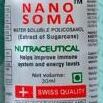In the quest for optimal heart health, individuals have a plethora of options, from dietary modifications to supplements. One supplement that has gained attention in recent years is policosanol, a natural compound extracted from sugarcane wax and several other plant sources. Known primarily for its potential cardiovascular benefits, policosanol is heralded for its role in managing cholesterol levels. This article will explore the various benefits of policosanol, its mechanisms of action, dosage recommendations, and considerations for use.
What is Policosanol?
Policosanol is a long-chain primary alcohol that is derived from the waxy coating of sugarcane, but it can also be found in other sources such as beeswax, rice bran, and wheat germ. In its purified form, policosanol appears as a white, waxy powder. Since its discovery in the 1990s, policosanol has been widely studied for its effects on cardiovascular health, leading to increased popularity as a dietary supplement.
How Does Policosanol Work?
Policosanol supports heart health through several mechanisms:
-
Cholesterol Regulation: Policosanol is known to reduce levels of low-density lipoprotein (LDL) cholesterol, often termed "bad" cholesterol, while potentially increasing high-density lipoprotein (HDL) cholesterol, or "good" cholesterol. This dual effect can help in maintaining a healthy cholesterol balance, which is crucial in preventing atherosclerosis—a condition characterized by the buildup of fats and cholesterol in artery walls.
-
Anti-inflammatory Properties: Emerging research suggests that policosanol may possess anti-inflammatory properties. By decreasing inflammation in the vascular system, it can help reduce the risk of cardiovascular diseases.
-
Antioxidant Effects: The antioxidant properties of policosanol may protect cardiovascular tissues from oxidative stress, a contributor to various heart conditions.
- Improvement of Endothelial Function: Studies indicate that policosanol may enhance endothelial function, which is vital for maintaining vascular health and regulating blood pressure.
Health Benefits of Policosanol
1. Cholesterol Management
Numerous studies support policosanol’s effectiveness in lowering LDL cholesterol levels while increasing HDL cholesterol. A review of clinical trials concluded that policosanol could significantly reduce total cholesterol and LDL cholesterol, with an improvement in the LDL/HDL ratio.
2. Cardiovascular Protection
By effectively managing cholesterol levels and reducing inflammation, policosanol can contribute to overall cardiovascular protection. The compound may also lower the risk of plaque formation in arteries, which is crucial for maintaining cardiovascular health.
3. Reduced Blood Pressure
Some studies suggest that policosanol may lead to slight reductions in blood pressure. This effect could be attributed to its capacity to enhance endothelial function, promoting better vascular relaxation.
4. Support for Exercise Performance
Policosanol is sometimes touted for its potential to enhance athletic performance. Some athletes incorporate it into their regimen, believing it may improve oxygen utilization and enhance endurance, although more extensive research is required in this area.
Recommended Dosage
The optimal dosage of policosanol varies among individuals and may depend on the reason for use. General recommendations suggest a daily intake between 5 to 20 mg. It’s essential to start with a lower dose and gradually increase based on tolerance and desired results.
When considering policosanol as a supplement, it’s advisable to consult a healthcare professional, especially for individuals taking anticoagulant medications or those with underlying health conditions, as interactions may occur.
Potential Side Effects and Considerations
Policosanol is generally well-tolerated, with minimal reported side effects. Some users may experience mild gastrointestinal discomfort, headaches, or skin reactions. However, due to its cholesterol-lowering capabilities, it’s essential to monitor cholesterol levels and overall health with a physician while supplementing with policosanol.
Conclusion
As the quest for heart health continues, policosanol emerges as a promising natural supplement with various cardiovascular benefits. From cholesterol management to potential anti-inflammatory effects, policosanol may play a vital role in maintaining heart health. However, like any supplement, it should be used judiciously and in conjunction with a balanced diet and healthy lifestyle. If you are considering incorporating policosanol into your regimen, consult with a healthcare provider to ensure it aligns with your health goals. By unlocking the benefits of policosanol, you may take a significant step toward supporting and enhancing your heart health.
